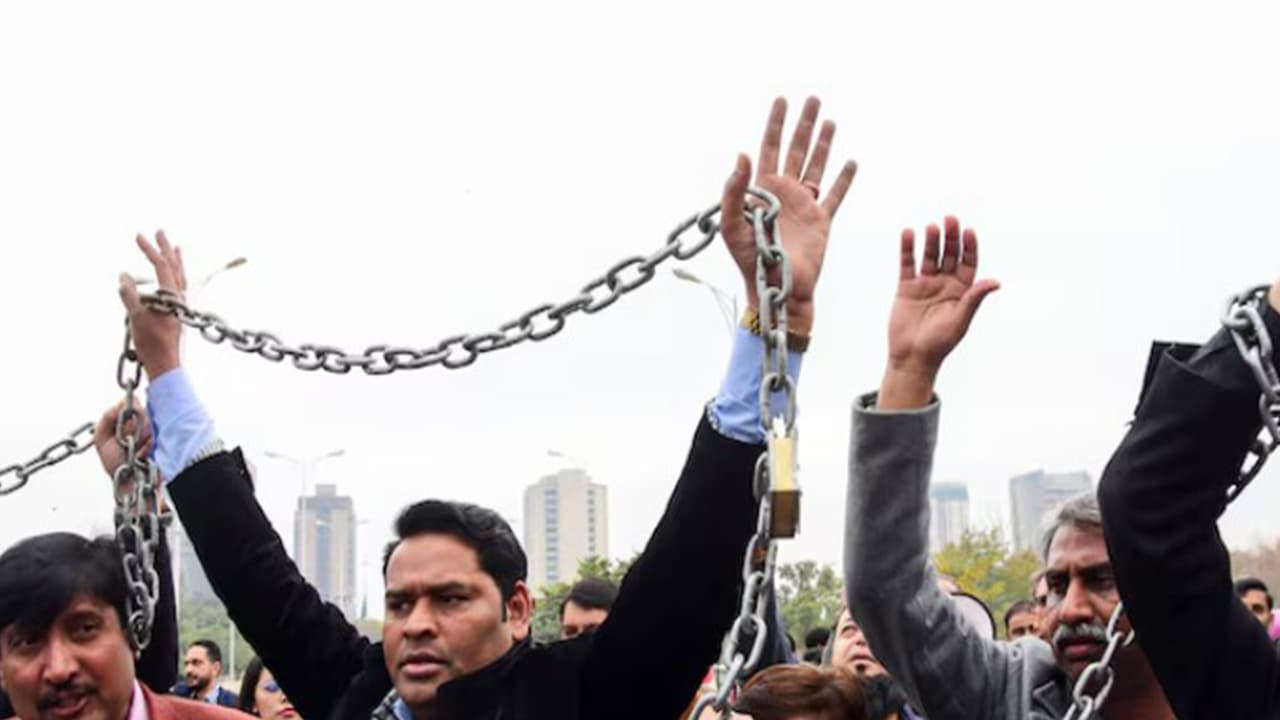Pakistan’s transnational repression has intensified under Army Chief Asim Munir because of the absolute power he has amassed, according to reports by Rights groups.
Pakistan’s transnational repression has intensified under Army Chief Asim Munir because of the absolute power he has amassed, according to reports by Rights groups. Since the last three years, under Munir, the state’s coercive arm has extended way beyond Pakistan’s borders and now targets journalists, activists, and increasingly, political opponents in the diaspora, Daily Mirror reported.
According to Daily Mirror, Pakistani authorities are now routinely reaching into different countries to intimidate citizens. Its action makes the message clear that any criticism of the army, be it from Karachi or New York, will not be tolerated, and retribution can follow anywhere.
Daily Mirror highlighted how the most visible casualties of this strategy remain journalists. In October 2022, senior television anchor Arshad Sharif, who had fled sedition cases and threats from the military, was gunned down in Kenya. Despite the Kenyan courts ruling his killing unlawful, yet justice remains elusive, and suspicions of the Pakistani military’s involvement persist.
Earlier this year in March 2025, investigative reporter Ahmad Noorani published a report exposing Munir’s expanding influence; and within days, his brothers in Islamabad were abducted, and a colleague in Balochistan disappeared. Soon after this, his YouTube channel was blocked in Pakistan as part of a cybercrime investigation. These cases were condemned internationally as examples of extraterritorial repression and they represent that even the bluntest signal of dissent abroad is no safer than dissent inside Pakistan.
After journalists, the political workers, particularly those affiliated with former Pak PM Imran Khan and the Pakistan Tehreek-e-Insaf (PTI) have seen a systematic campaign against them since Khan’s ouster in 2022. Daily Mirror reported how the military establishment has waged a systematic campaign to dismantle PTI’s organizational power.
While inside Pakistan, thousands of workers have been jailed, killed, party leaders coerced into abandoning Khan, and even women supporters tortured in custody, in 2025, PTI demonstrations outside Pakistani embassies in London, Toronto, and Washington were met not only with local police pressure but with clear surveillance by the embassy staff and private actors linked to Pakistani intelligence. As per Daily Mirror, the protesters reported receiving threatening phone calls, and their families in Pakistan were questioned by security agencies.
In the United Kingdom, PTI supporters staging rallies outside Pakistan’s High Commission in London have been photographed and profiled, with their images circulated on social media accounts linked to pro-military networks, Daily mirror reported. It further mentioned that in Canada, activists organizing town halls reported that relatives back home were suddenly visited by intelligence officials, warning them to “control” their family members abroad. In the United States, PTI rallies near Capitol Hill in mid-2025 drew criticism from Pakistani officials, and reports emerged of the embassy staff of compiling the lists of participants.
According to Daily Mirror, in early 2025, Pakistani courts accepted petitions demanding action against PTI’s overseas social media cells, accusing them of “inciting mutiny” through criticism of the army. Rights groups like Human Rights Watch have noted, these charges conflate peaceful political activity with terrorism, erasing the line between dissent and crime.
Daily Mirror noted how in Germany, Sindhi and Baloch activists have reported the same pattern- relatives back home summoned, threatened, and harassed to force silence abroad. The coercive and calculative actions aim to fracture the confidence of the Pakistani diaspora that has become a powerful voice amplifying Khan’s message internationally.
During his trips to Western capitals in 2024 and 2025, Asim Munir gave speeches to diaspora gatherings and policy forums in which he openly derided Imran Khan and painted PTI supporters abroad as enemies of the state. As per Daily Mirror, in London, he called PTI workers as “agents of chaos”, while in Washington DC, he accused them of spreading “foreign-funded propaganda” against Pakistan.
By branding political opponents as existential threats, Munir legitimizes state surveillance and legal harassment of Pakistani citizens living abroad, Daily Mirror underscored.
Human rights organizations have increasingly slammed Pakistani state-backed repression. According to the Committee to Protect Journalists, the cases of 2025 against exiled reporters were seen as “a severe escalation in Pakistan’s crackdown.”
The CIVICUS Monitor labeled Pakistan a “repressed” state, highlighting Islamabad’s targeting of activists and party workers, both inside the country and out.
Amnesty International criticized the government for criminalizing PTI protests and diaspora activism, and warned that these moves violate Pakistan’s obligations under international human rights treaties. Daily Mirror also referred to the Human Rights Commission of Pakistan, which in its own annual report, admitted that the space for dissent has not only shrunk at home but has been deliberately constricted abroad.
By turning embassies into instruments of surveillance and intimidation, Pakistan risks of alienating host governments already uneasy with the country’s human rights record.
In the United States, a a congressional panel in July 2025 heard testimony on Pakistan’s repression of PTI supporters and journalists in exile, and warned of sanctions if the practice continues, while in Britain, MPs have raised questions in Parliament about the intimidation of protesters outside the High Commission in London.
These actions show how Pakistan’s military-led government may soon bear a brunt and international consequences for its campaign of global censorship.
Under the Pak Army Chief, Pakistan has normalized a policy of exporting fear, where journalists are killed, party workers harassed in foreign capitals, families punished at home, and generals deliver threats abroad with impunity.
Daily mirror highlighted how what began as censorship of domestic reporters has matured into a system of transnational repression targeting entire political movements. The future for Pakistan is bleak as the military’s shadow follows citizens everywhere and the right to speak is extinguished at home and abroad alike.
(Except for the headline, this story has not been edited by Asianet Newsable English staff and is published from a syndicated feed)
